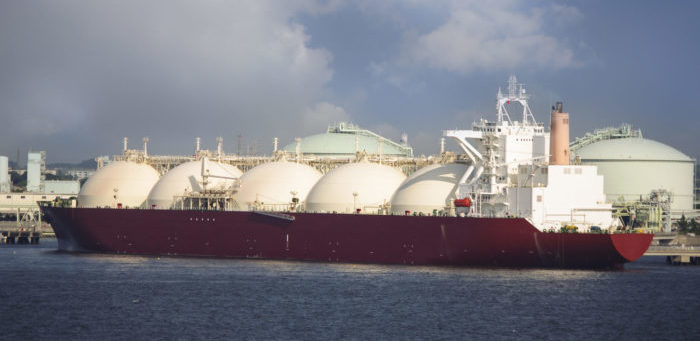According to Reuters, traders are beginning to look for booking vessels or shipping liquefied natural gas (LNG), as they expect that winter demand will increase prices for spot cargoes, which are trading near record lows.
In the meantime, the vessels are to be booked in a timeframe from one to several months, which experts believe will boost shipping rates.
Given that during this period the Asia LNG spot cargoes trade in less than $4 per million British thermal units, traders could purchase the cargoes now for a future use, keeping in mind that the demand usually increases during winter for heating, which leads the prices up.
[smlsubform prepend=”GET THE SAFETY4SEA IN YOUR INBOX!” showname=false emailtxt=”” emailholder=”Enter your email address” showsubmit=true submittxt=”Submit” jsthanks=false thankyou=”Thank you for subscribing to our mailing list”]
Accordingly, the purchase of cargo ships for later use, also known as contango carry trade, is a usual phenomenon in oil markets; Yet, Reuters suggests that this procedure is risky for LNG, due to high storage costs and because LNG cargoes evaporate over time.
In addition, the LNG spot prices in November, are expected to reach the $1 per million British thermal units more, in comparison to October, as the latter’s spot prices are likely about 70 to 90 cents higher than September prices.
Because of the challenges of LNG storage and the uncertain economic outlook, some traders follow a more cautious approach.
A Singapore-based LNG trader quoted to Reuters that ‘At 90 cents contango, floating storage is starting to make sense and at $1.50 people will be jumping on it‘.
Last year, more than 30 vessels globally were flagged as floating storage ahead of winter as traders bet that demand would increase exponentially like it did the year before. But, spot prices subsequently fell amid a mild winter.
Concerning the overall LNG market, according to a Banchero Costa report China could be the world’s top LNG importer, whereas, Wood Mackenzie recently stated that China could possibly overtake Japan as a top LNG exporter by 2022; Specifically, LNG imports in Japan are expected to decline 12% to 72.8 million tonnes per annum (mmtpa) compared to 2018, while China’s import volume rises 37.5% to 74.1 mmtpa.

































































